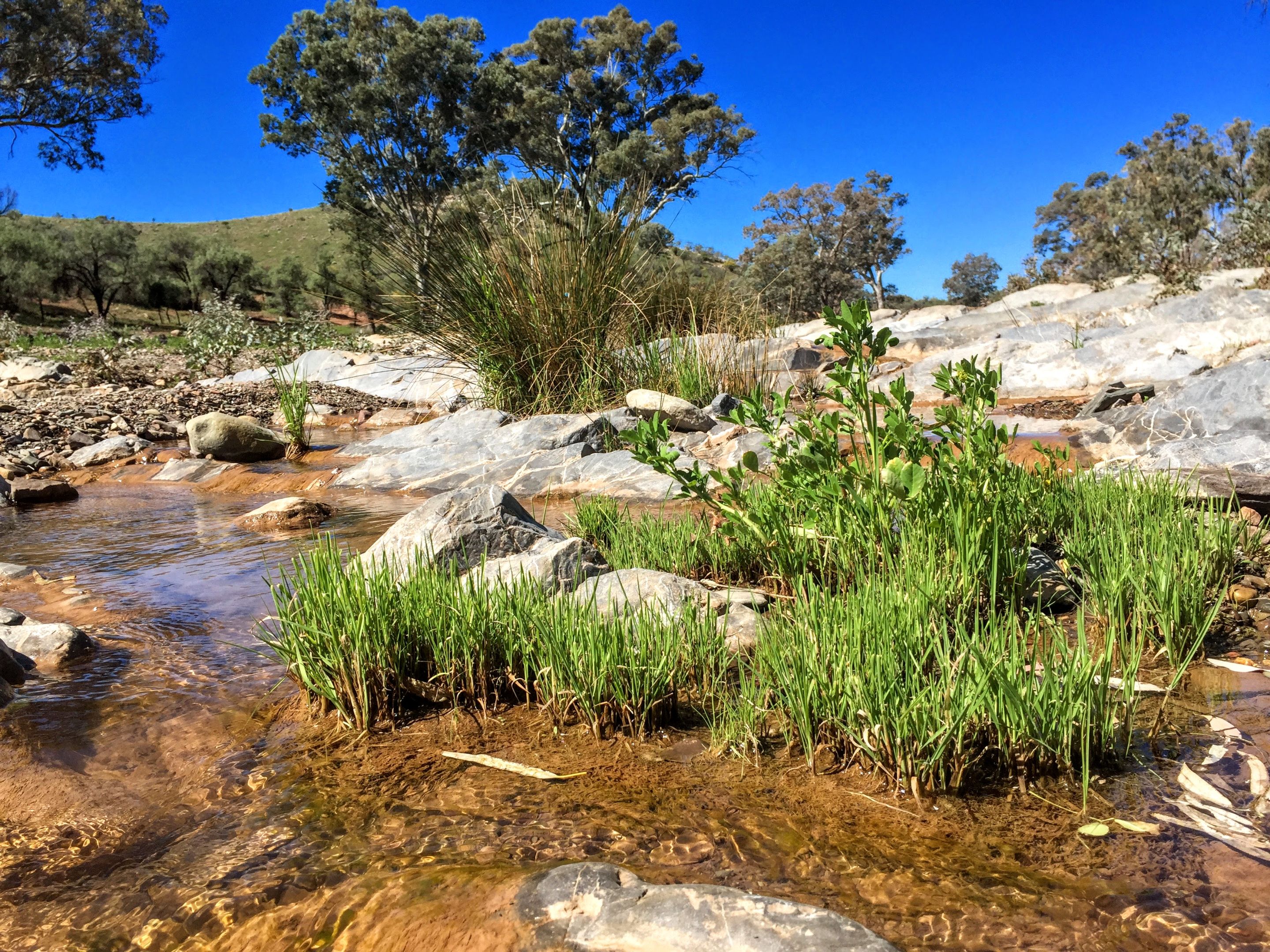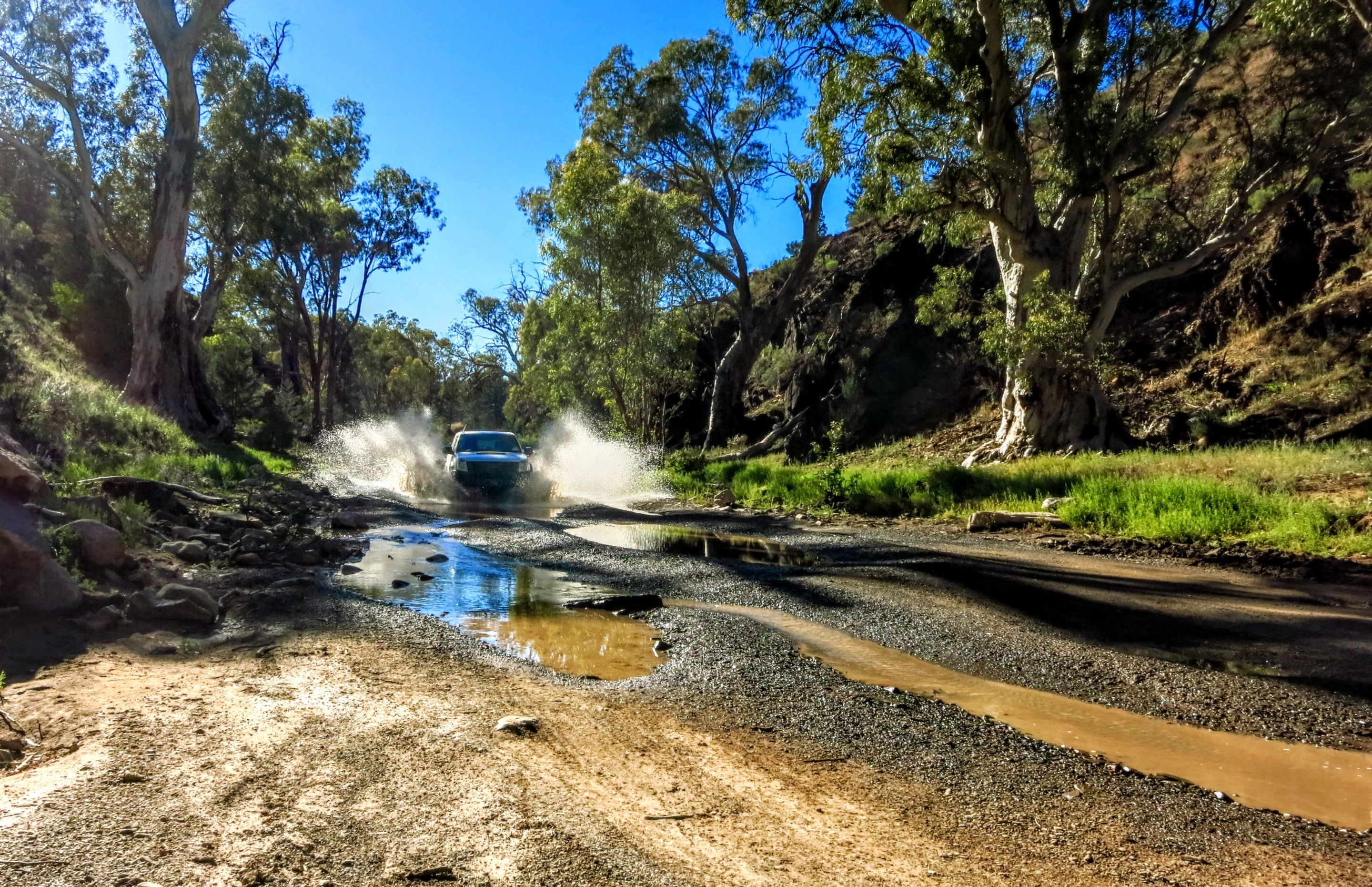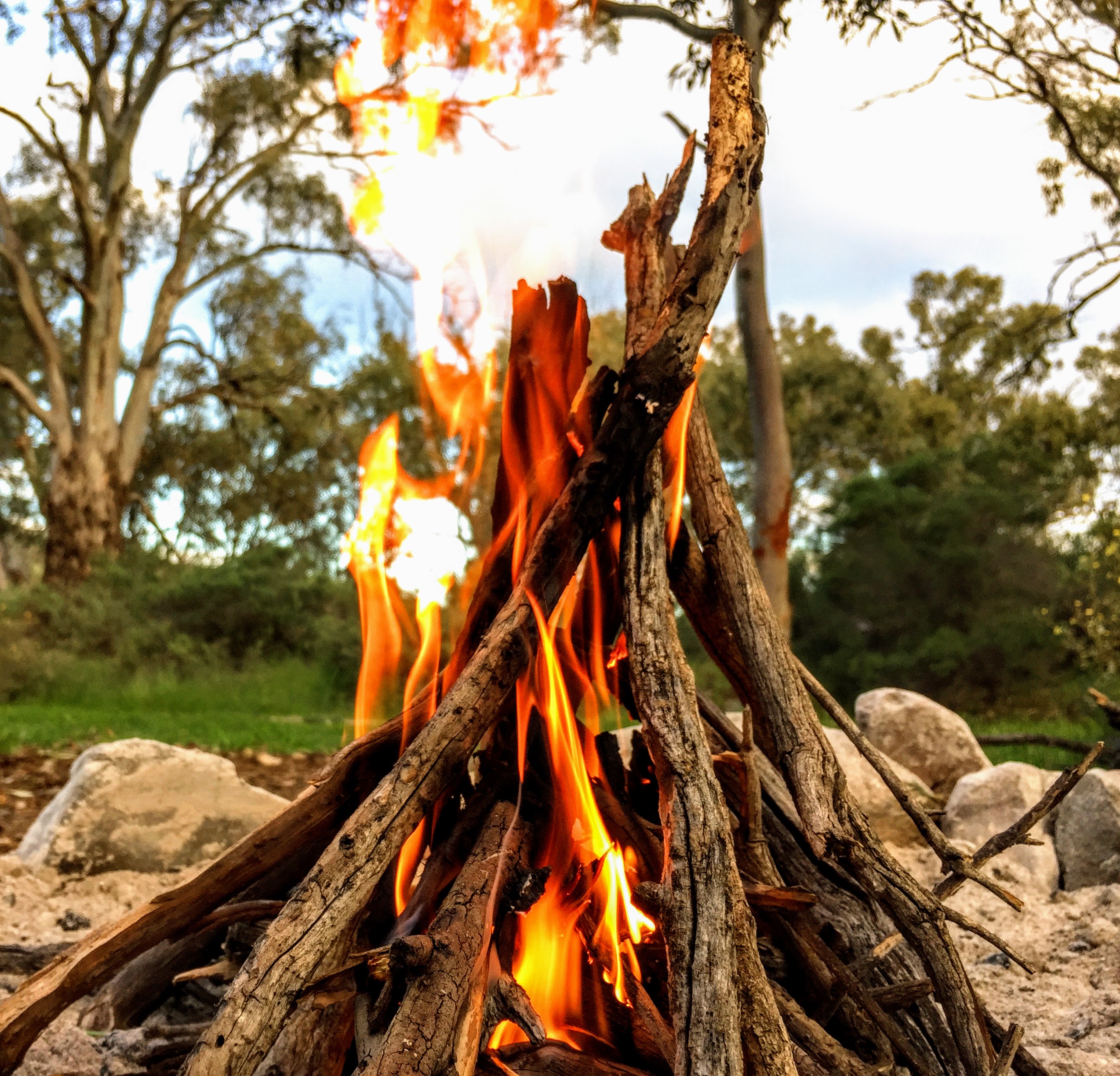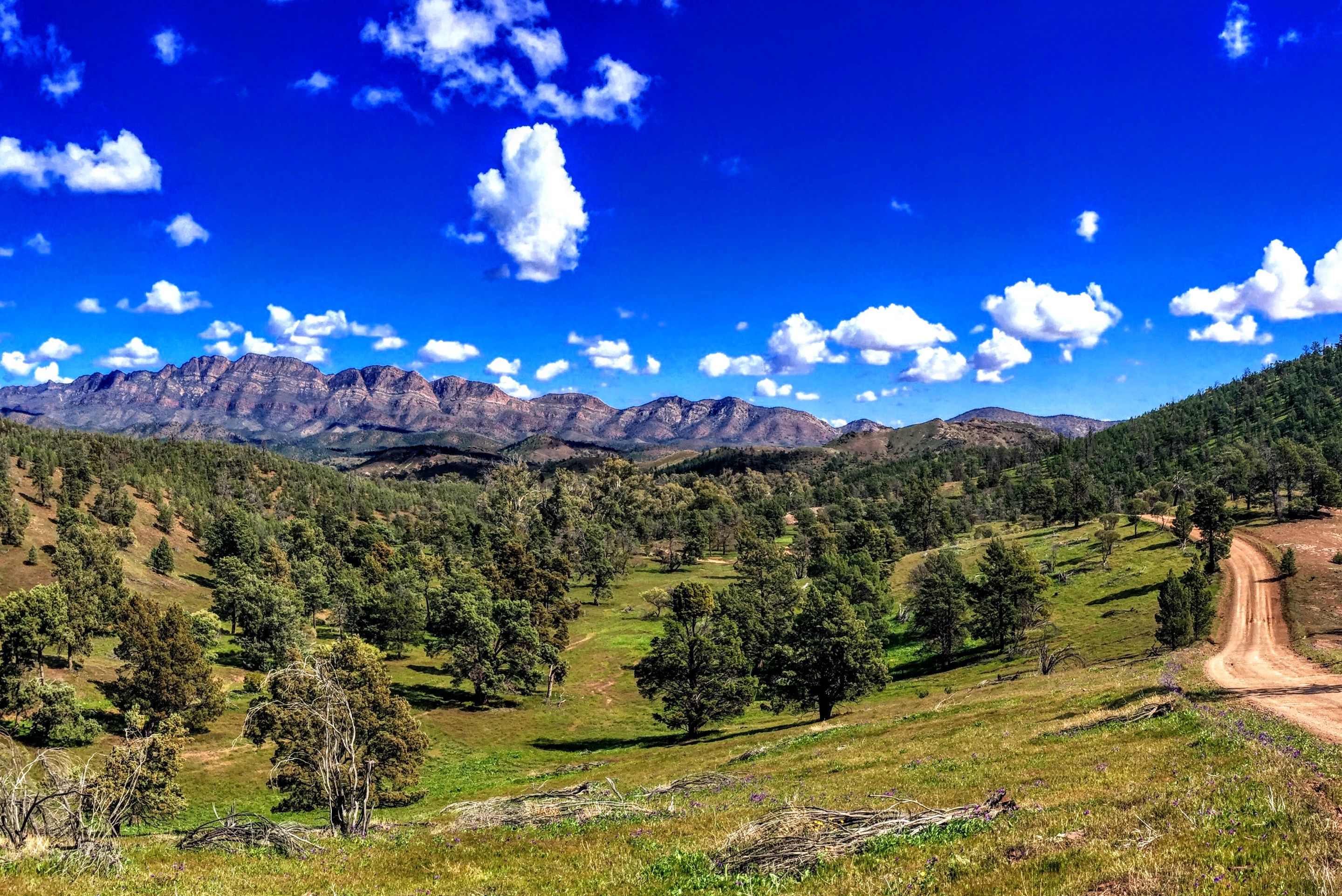Camping, and doing it
hive-139358·@galenkp·
0.000 HBDCamping, and doing it
<div class="text-justify"> <center>*The appeal of the wild for me is its unpredictability. You have to develop an awareness, react fast, be resourceful and come up with a plan and act on it.*</center> <center>**- Bear Grylls -**</center> *** *** Over the years I've done a lot of camping and have had set-ups that could be called rudimentary at best, and set ups that are quite luxurious when; one thing is consistent though, I love camping and will take every opportunity to do it - Sleeping under a sky full of stars, away from other people, having to be self-reliant and getting back to the basic human needs of food, shelter and warmth is rewarding to me. Yes, I'm a bit of a caveman so it makes sense that I love camping. Rope and a tarpaulin, a lean-to made of sticks and branches or a hastily dug trench is pretty basic camping, but I've done the *sleep on the ground with a rain coat pulled over me* version on many occasions also - Far more basic. These days I use my off-road camper trailer mostly which is about as far away from, *hole in ground camping*, as one can get and I think I deserve that comfort. But no matter what format camping takes on, one needs to make some considerations prior to setting up. I thought I'd raise a few points on how to look for a safe camp location today, and whilst this isn't designed to be a text book on how to camp, these things are quite important. Keep in mind I'm talking about camping in Australia here so some of the things may vary to your own location. #### Not under trees please Camping under trees, especially Australian Native Eucalypts, is a bad idea. They have a habit of dropping branches - a stress-reaction - more prevalent in extreme heat as it helps preserve moisture and the rest of the tree. If one was to fall on a person it generally means a serious injury and can, and has, caused death. This happens more than you might think also, and not just camping. I never park my cars under them either. Ever. Other trees drop branches too, and should a lightning storm roll in when you're asleep in your tent quite possibly you're in for an electric evening or *BOOM* a tree falls on you...and not in a good way. <center></center> #### A little water never killed anyone But yeah, it actually has. Camping near water is great for obvious reasons, but it comes with serious hazards as well. Whilst the most ideal spot might look like the middle of that dry river bed a heavy downpour hundreds of kilometres upstream could come down in the night and...It gives *wet dreams* a whole new meaning. It's the same when camping near the beach where weather-events can generate without warning and roll in quickly. Water is one of the most destructive forces on the planet and needs to be given a lot of respect. It's also wise to consider your intended camping location's accessibility. Driving in when dry might work fine but after a downpour getting out may be impossible. This is why I have a four wheel drive vehicle, but even then one can get stuck. <center></center> #### Wind never killed anyone either Well, at least until it actually *did!* This is an interesting one for me and one that's not always easily mitigated as wind isn't very controllable. Checking where the wind will come from prior to setting up will ensure you're not choking on smoke or blowing dust and sand though and some efforts can be made to create a wind break to make a camping experience a little more enjoyable. Prevailing winds can make camping miserable. I've been in situations where the vehicles have been circled for various (valid) reasons with them becoming a wind-break being one. The problem is that circling can cause winds to swirl *inside the circle* (or box) as it becomes trapped by the vehicles. The resulting *gusts* and mini-tornados can make life unbearable, and tear a well laid-out camp to shreds, making cooking impossible and enjoyment also. Wind that swirls or becomes trapped can also cause smoke from campfires to do the same and if you've ever choked on campfire smoke you'll know it's not a nice feeling. It's best to allow wind to flow through the camp and away and, as a wind break, I tend to place my vehicle at a right angle to my camper and the wind so it is somewhat blocked but what gets through can flow through. <center></center> #### Go back-north and watch your back No, I don't mean go north, I mean try and have the North to your back whn you set up camp. Remember, this is for camping in Australia, a land that is mostly hot and sunny, and having the North to one's back means one can take advantage of shade from the camp set-up when the day is hottest, due to the sun's position. Some consideration should be put into protecting oneself from the elements as well, and that means camping on the *windward* side, (upwind side), of a hill, stand of trees, sand dunes and so on is not going to work out so well. The *leeward* side, (down-wind side), will provide much more protection and can make a camping experience more enjoyable. Camping on the top of a hill is folly, you're better to camp in the depression on the leeward side. <center></center> #### You're fired Having a comfort fire or one to cook on is one of the great joys of camping but a great deal of care needs to be taken for obvious reasons. Fire-placement needs to be done carefully, the area around the fire pit needs to be cleared and it's best to keep the size down to acceptable levels for the job at hand. A fire ring of rocks is a good idea as a small wind break and also as a barrier between the fire and the surrounding areas, but beware of what rocks you use, and always use an existing one where possible so you're not messing up the area more. All (most)rocks contain some degree of water within them and when heated they can explode. I don't mean like a claymore or hand grenade, but stone shards in the eye is going to ruin your day, and maybe the rest of your life. Porous rocks like sandstone and shale are the the culprits, but any rock that came out of a river is likely to explode when hot. Those nice round river rocks that would make the idea fire ring are best avoided. Marble, slate and granite can be good alternatives if available but could still be a risk. Something combustible is required to make fire; there's actually three elements: Oxygen, heat and fuel. Here in Australia one needs to take one's own wood into most National Parks and camping areas. The idea behind that is so that people don't go chain-sawing or axing trees to death. Even fallen branches and trees should be left, they probably house a little animal. This is an annoying, but essential, thing of course - A person in the wilderness should tread lightly and have as little impact upon it as possible. I always have other means to cook and make fire but there's nothing quite like a wood fire when camping...Oh, and obey fire bans as well. <center></center> #### Time to pack up and leave I'm going to wrap it up here as this post is getting long. I wanted it to be a brief insight into selecting and setting up a safe camp and I think these elements are a very good start. There's so many elements to a safe campsite and safe camping in general and a post like this could never cover them all. I guess common sense comes into play, the *leave it better than you found it* ethos and respect also; I mean respect for the planet and other people. Camping is one of the most enjoyable things to do and not just for the value of sitting around a low-burning fire watching a gazillion stars overhead whilst sipping coffee brewed on the fire. It's peaceful, nurturing and one feels closer to the planet in the wilderness; I think because it takes us back to our beginnings when we were more in tune with the land. It allows the time and space to open oneself to the vibration of the planet and all life around us and I think we *notice life* more keenly in situations like that. I find it so anyway. Feel free to ask any questions below, or maybe tell me about your own camping set up if you like, or camping disasters. </div> *** Design and create your ideal life, don't live it by default - *Tomorrow isn't promised so be humble and kind* <sub><sub>Every image in this post is my own</sub></sub>
👍 trangbaby, bhoa, jkp.nisha, noloafing, abh12345.pal, idea-make-rich, babeltrips, abh12345.archon, dodovietnam, phuongthao98, thu172, lynnnguyen, kimloan, winnietran, dora381, whynotcamp, sunnyvo, hyhy93, lamphuong, ivypham, tuyenmei95, youdontknowme, blezyn, hiveart, hungryharish, babytarazkp, bpcvoter, jeffmackinnon, joeyarnoldvn, patriciaurbaneja, scooter77.pob, steemindian, positiveninja, liaminit1, beautifulwreck, papacrusher, atma-yoga, moeenali, alphaccino.art, hungryanu, therealyme, hive-142864, smartvote, igrinov, manuelmusic, tamiapt6, janaveda, soyunasantacruz, daveyjones7, abh12345, lestrange, jayna, abitcoinskeptic, philnewton, tobias-g, misterengagement, drricksanchez, mattbrown.art, abh12345.cards, isabel-vihu, mallorcamum, nooblogger, netaterra, blockbroccoli, drexlord, papilloncharity, aleister, dkid14, revisesociology, edb, simplymike, janton, goingbonkers, ninnu, cookaiss, revise.spk, organicgardener, oac, battlemaster, monsterdoom, mylibrary, smasssh, yousafharoonkhan, royaleagle, flxlove, ltcih, ltcij, ltcil, logantron, abh12345.sports, sunshineee, ityp, stoodkev, cedricguillas, cryptoandcoffee, stoodmonsters, gawz69, doomsdaychassis, itmp, src3, jongolson, archytas.replica, iamfarhad, bgmoha, jasonbu, fullcoverbetting, paulag, ericburgoyne, cbridges573, steemmatt, digital.mine, oliverschmid, princessamber, ghostdylan, awildovasquez, russellstockley, kgsupport, molometer, zayedsakib, kggymlife, edwardstobia, newageinv, kgakakillerg, linco, blewitt, phortun, themanwithnoname, bozz, thanksforplaying, pet.society, golddeck, gooddeck, petrvl, kimzwarch, intrepidphotos, onlavu, riverflows, pavelsku, velinov86, jelly13, penguinpablo, lynds, cryptonized, saboin.sports, funnyman, belahejna, alphacore, piotr42, maajaanaa, fenngen, hiveghost, hykss.nature, teamaustralia, mytechtrail, hungrybear, mjvdc, kibela, binkyprod, lizelle, allyson19, blainjones, jacuzzi, doudoer, mamalikh13, marybellrg, elchaleefatoe15, sharker, warpedpoetic, celestal, erikah, minismallholding, zemiatin, urtrailer, mattclarke, denmarkguy, b00m, spamfarmer, shortsegments, driedfruit, whangster79, gloriaolar, shaka, izzydawn, jlsplatts, realtreebivvy, life-relearnt, foodfightfriday, kuku-splatts, mjmarquez4151, splatts, alphahippie, w-splatts, simplifylife, ezraswish, bigtom13, sophieandhenrik, coinomite, tryskele, labyrinths, cryptoccshow, cosmictriage, malomi, notconvinced, steemitbloggers, roleerob, whitelightxpress, abcor, abacam, zeeon, bet1x2, nthtv, teamashen, shainemata, slobberchops, liz.writes, andrastia, balticbadger, biffybirdcam, leighscotford, johannpiber, artmentor, bluemoon, dandays, crysis, denizcakmak, inpursuit, dinglehopper, halukshananah, blanvu, catinthewindow, pursuant, hive.friends, ctrpch, brayanvu, dragokazo, azircon, idig, eunoia101, tcpaikano, danielvu, soyrosa, meesterboom, nateaguila, mengao, antgomvu, emma-h, wisbeech, dickturpin, bjvu, nickydee, citizensmith, mawit07, logicforce, biyaawnur, plusvault, mipiano, cabelindsay, qsounds, sparker005, hiveopenmic, iamevilradio, patronpass, elvarvu, momins, tarazkp, jonela, miha-sweet, bigmoneyman, cconn, tomwafula, darkpylon, ezegvu, jasonwaterfalls, sazbird, uwelang, currentxchange, karelia, massivevibration, manoldonchev, sudutpandang, fexvu, appreciator, detlev, x30, outlinez, vicnzia, discoveringarni, bluemist, lenasveganliving, sunsea, inciter, marblely, josehany, myfreshes, zeesh, actioncats, lucianav, cielitorojo, elgatoshawua, hexagono6, fotomaglys, aprasad2325, wendy0520, marblesz, xappreciator, thereikiforest, coolsurfer, kattycrochet, leaky20, cubapl, vancouverdining, becca-mac, marian0, fieryfootprints, gilrovu, beerlover, dyjoon, builderofcastles, nening, giorgakis, graciousvic, bagpuss, christopher2002, newsflash, maxwellmarcusart, blind-spot, davidesimoncini, javivu, hislab, anttn, hive-189277, oscarps, chinchilla, jonnyvu, aswita, josealvu, abouttodie, jasonmunapasee, josevuu, bashadow, jeryco, stickupboys, stickupmusic, bellou61, ambrosechappel, ministickupboy, stickupofficial1, stickupcash, rakhmen, danlop, inesvu, tdctunes, nowserving, theopinion, perzeus, raffy, flanz15, ga38jem, avon04, nasseir, hive-145540, bimpcy, sina-adventure, stevemuis, steemadi, dennnmarc, violator101, riz611, cmplxty, ssiena, templeflower, insaneworks, dsky, trucklife-family, preparedwombat, ksteem, denisdenis, hive-186141, dayat92, hironakamura, readthisplease, onwugbenuvictor, deraaa, estherscott, winniecorp, omosefe, atyourservice, reineesmay, martinlazizi, krazzytrukker, jungleboyatjeh, karbon, thewritersblock, muxxybot, jordan.lesich, hispeedimagins, derangedvisions, rynow, charmingcherry, broncnutz, astrocat-3663, almi, jphamer1, apshamilton, hamismsf, yaelg, jpbliberty, hivesuperman, isabelpena, mitchcabz, cryptopaddy801, ikrahch, blanchy, engioi, franzpaulie, janitzearratia, viajera1980, glowstar, guest123, jacey.boldart, darsico, planetauto, social, giotists, smithlabs, freebornsociety, doobetterhive, rauti, blackdovy, kucibak-macro, daveks, artonmysleeve, preets, anacristinasilva, dswigle, nkechi, agmoore2, baddyeren, umirais, marymi, shaunf, santigs, softworld, ingridontheroad, relf87, silentbot, m36, criptocreativo1, jacobtothe, holoz0r, boxcarblue, buckaroobaby, kirkoliver, arisad, larus, fani.jaat, natabell, shinoxl, mrprofessor, alexft, hivecluster, abdulsabor, outdoor.life, lonelyfin, mellanna,